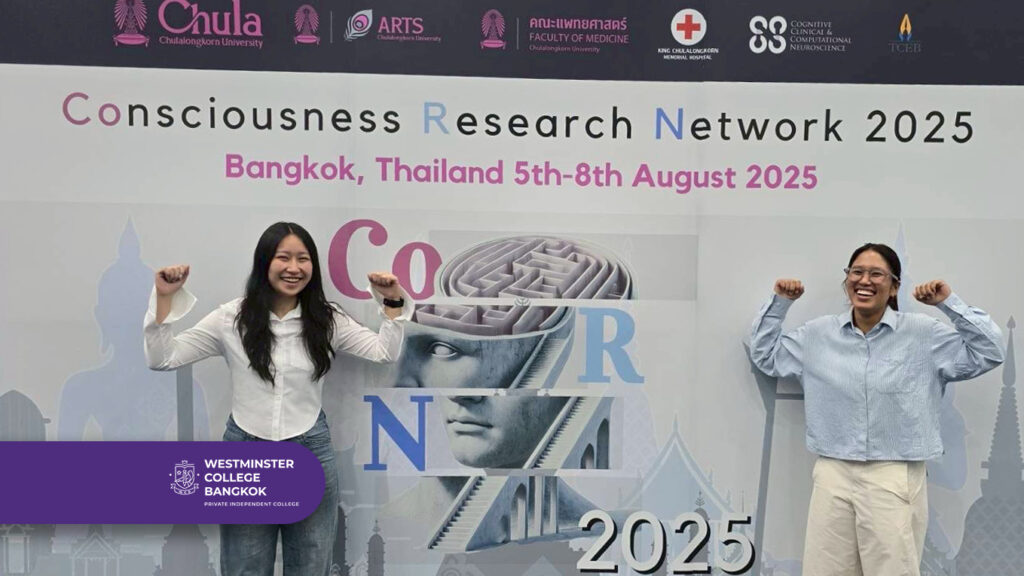
From 5–8 August 2025, the Consciousness Research Network (CoRN) 2025 brought together leading thinkers, educators, and researchers from around the world at Chulalongkorn University and King Chulalongkorn Memorial Hospital in Bangkok, Thailand. The event featured keynote talks, panel discussions, and poster presentations exploring the frontiers of consciousness, cognition, and human learning.
Among the notable presentations was a collaborative project led by Westminster College Bangkok in partnership with Golden Gate University (USA), Siriraj Hospital, and Burapha University. Titled “AI-Supported Reflection to Explore Metacognition, Mindfulness and Empathy in Science and Medical Education”, this study showcased how artificial intelligence can enhance reflective learning in educational contexts.
CoRN 2025 was hosted by Chulalongkorn University’s Faculty of Arts and Faculty of Medicine, in collaboration with global neuroscience and cognitive science institutes. The event featured prominent keynote speakers including Joel Pearson (University of New South Wales), Jonathan Schooler (University of California Santa Barbara), and Sascha Fink (FAU Erlangen & University of Glasgow). Special guest Jayasaro Bhikkhu offered unique insights into mindfulness and consciousness.
Reflection is a powerful process in which learners think deeply about their own understanding, emotions, and strategies. In science and medical education and where accuracy, empathy, and resilience are essential, structured reflection helps students identify strengths, address learning gaps, and develop self-regulated learning habits.
However, many students struggle to reflect consistently or in depth. This is where AI-powered tools can play a transformative role.
The project involved 23 high school and university students (ages 16–20) from science- and medicine-related fields. Using AI-guided reflective journaling, students received structured prompts to think about their learning strategies, emotional responses, and personal growth.
The AI assistant not only collected reflections but also provided follow-up clarifying questions, helping students:
Quantitative and qualitative results revealed significant benefits:
Four main themes emerged:
The study concluded that AI-supported reflection can foster deeper metacognitive skills, mindfulness, and empathy, qualities vital for success in both academic and professional life. The team suggested further research to refine AI prompts for greater personalisation, and to explore its potential integration into mainstream science, technology, engineering, and medical (STEM) curricula.
By combining technological innovation with human learning science, this approach represents a step toward more self-aware, empathetic, and adaptive learners.
Through our partnership with UNSW College Foundation Studies, our students gain the skills, confidence, and global exposure to excel in top universities and beyond.
The success of our student in presenting research at the Consciousness Research Network 2025 is proof that with the right guidance, every learner can unleash their potential and shine on the world stage.
📩 Start your journey today
Apply for UNSW College Foundation Studies at Westminster College Bangkok and take the first step toward your own global achievement.